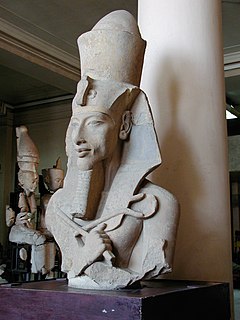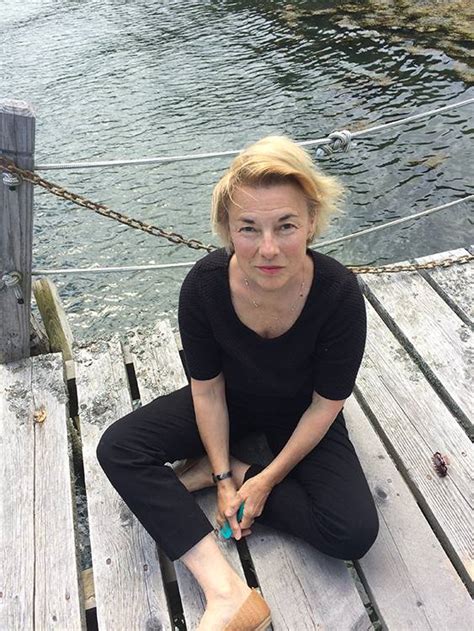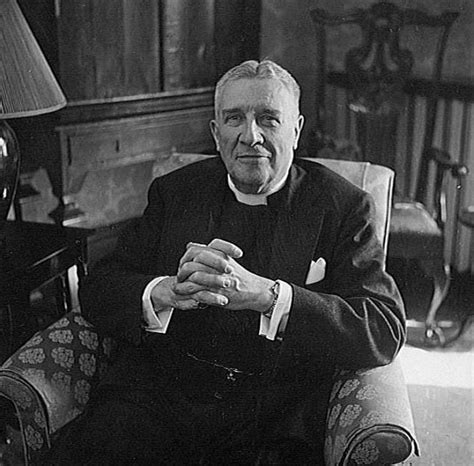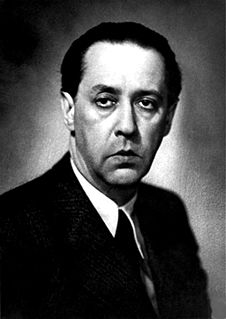Top 342 Natures Quotes & Sayings - Page 6
Explore popular Natures quotes.
Last updated on November 9, 2024.
Everyone has his food, and his time of life is reckoned.Their tongues are separate in speech,And their natures as well;Their skins are distinguished,As thou distinguishest the foreign peoples.Thou makest a Nile in the underworld,Thou bringest forth as thou desirestTo maintain the peopleAccording as thou madest them for thyself,The lord of all of them, wearying with them,The lord of every land, rising for them,The Aton of the day, great of majesty.
The real questions are the ones that obtrude upon your consciousness whether you like it or not, the ones that make your mind start vibrating like a jackhammer, the ones that you "come to terms with" only to discover that they are still there. The real questions refuse to be placated. They barge into your life at the times when it seems most important for them to stay away. They are the questions asked most frequently and answered most inadequately, the ones that reveal their true natures slowly, reluctantly, most often against your will.
Perhaps the heroic element in our natures is exhibited to the best advantage, not in going from success to success, and so on through a series of triumphs, but in gathering, on the very field of defeat itself, the materials for renewed efforts, and in proceeding, with no abatement of heart or energy, to form fresh designs upon the very ruins and ashes of blasted hopes. Yes, it is this indomitable persistence in a purpose, continued alike through defeat and success, that makes, more than aught else, the hero.
Republicans ... are conservatives who think it would be best if we faced the fact that people are no damned good. They think that if we admit that we have selfish, acquisitive natures and then set out to get all we can for ourselves by working hard for it, that things will be better for everyone. They are not insensitive to the poor, but tend to think the poor are impoverished because they won't work. They think there would be fewer of them to feel sorry for if the government did not encourage the proliferation of the least fit among us with welfare programs.
Christ is of two natures, the human and the divine, and we are the same: we are of the human nature, but covered with the divine. He is the God-man, and we are the God-men. He is the ark made of wood covered with gold, and we are the boards made of wood covered with gold. In number we are different, but in nature we are exactly the same.
Some determined advocates of the vegetable system maintain, that the teeth and stomach of the monkey correspond, in structure, very closely with that of man, yet it lives on fruits - therefore if man followed nature, he would live on fruits and vegetables. But though the anatomical likeness between man and monkeys is striking, yet it is not complete; the difference may be and doubtless is precisely that which makes a difference of diet necessary to nourish and develope their dissimilar natures. Those who should live as the monkeys do would most closely resemble them.
There is nothing “still” in the remarkably visceral poems of Alexander Long's third collection, Still Life, and nothing is at rest in these restless and edgy poems. Conversational and kinetic, these poems chart the traces left by the shifting overlays of the templates of literature, rock-and-roll, and contemporary culture. As each poem in Still Life attempts to fix a focus upon a scene or subject, the protean natures under view draw the poet into the eddies and complexities of reflection. This is a powerful and moving collection of poems.
It would be a miracle of God if it happened. I know it... If God wills it, the summer rains will fill the wadis... and the salmon will run the river. And then my countrymen... all classes and manner of men-will stand side by side and fish for the salmon. And their natures, too, will be changed. They will feel the enchantment of this silver fish... and then when talk turns to what this tribe said or that tribe did... then someone will say, Let us arise, and go fishing.
Some leave our life with tears, others with an insane frigidity; Mrs. Wilcox had taken the middle course, which only rarer natures can pursue. She had kept proportion. She had told a little of her grim secret to her friends, but not too much; she had shut up her heart--almost, but not entirely. It is thus, if there is any rule, that we ought to die--neither as victim nor as fanatic, but as the seafarer who can greet with an equal eye the deep that he is entering, and the shore that he must leave.
In White Summer, Joelle Biele exhibits a Roethke-like affinity with nature and natures creatures. At times a miniaturist, Biele constructs exquisite addresses to a heron, cicada, spider, catalpa tree, mockingbird, snail, cormorant, and others. These pitch-perfect poems are written with a delicate, meticulous attention to craft and music. Like the joy she takes in her subjects, this collection is a joy to read.
We are here to witness the creation and to abet it. We are here to notice each thing so each thing gets noticed. Together we notice not only each mountain shadow and each stone on the beach but, especially, we notice the beautiful faces and complex natures of each other. We are here to bring to consciousness the beauty and power that are around us and to praise the people who are here with us. We witness our generation and our times. We watch the weather. Otherwise, creation would be playing to an empty house.
Love is the expansion of two natures in such fashion that each include the other, each is enriched by the other. Love is an echo in the feelings of a unity subsisting between two persons which is founded both on likeness and on complementary differences. Without the likeness there would be no attraction; without the challenge of the complementary differences there could not be the closer interweaving and the inextinguishable mutual interest which is the characteristic of all deeper relationships.
If we want sincere harmony, peace and joy in our lives, we can have them, but we must be willing to do the work. We must make maintaining an awareness of our spiritual natures first in our lives. Our inner world is the architect of our external world. We don't lose faith in the goodness of life because we become angry and depressed. We become angry and depressed because we lose faith in the goodness of life.
I hear in the big city, girls dress up like sexy witches and sexy vampires and sexy Easter bunnies, and go to parties where they do all sorts of scandalous things," Kami said. "Luckily you and me, we got to walk around our town looking at our neighbours' gardens and remarking 'My, that's a good-looking scarecrow' to each other. I guess this is why our natures are so beautiful and unspoilt.
Innate sensuousness rarely has any desire for accuracy, no desire for precise information. It basks in sunshine, bathes in color, dwells in a sense of the impressive and the gorgeous, and rests there. Accuracy is not necessary except in the case of aggressive, acquisitive natures, when it manifests itself in a desire to seize. True controlling sensuousness cannot be manifested in the most active dispositions, nor again in the most accurate.
Thus, when we plead for the gift of charity, we aren't asking for lovely feelings toward someone who bugs us or someone who has injured or wounded us. We are actually pleading for our very natures to be changed, for our character and disposition to become more and more like the Savior's, so that we literally feel as He would feel and thus do what He would do.
Young people are dazzled by the brilliancy of antithesis, and employ it. Matter-of-fact men, and those who like precision, naturally fall into comparisons and metaphor. Sprightly natures, full of fire, and whom a boundless imagination carries beyond all rules, and even what is reasonable, cannot rest satisfied even with hyperbole. As for the sublime, it is only great geniuses and those of the very highest order that are able to rise to its height.
War is then not a relationship between one man and another, but a relationship between one State and another, in which individuals are enemies only by accident, not as men, nor even as citizens, but as soldiers; not as members of the fatherland, but as its defenders. Finally, any State can only have other States, and not men, as enemies, inasmuch as it is impossible to fix a true relation between things of different natures.
I rejoice that horses and steers have to be broken before they can be made the slaves of men, and that men themselves have some wild oats still left to sow before they become submissive members of society. Undoubtedly, all men are not equally fit subjects for civilization; and because the majority, like dogs and sheep, are tame by inherited disposition, this is no reason why the others should have their natures broken that they may be reduced to the same level.
...as there is no screen or ceiling between our heads and the infinite heavens, so is there no bar or wall in the soul where man, the effect, ceases, and God, the cause, begins. The walls are taken away. We lie open on one side to the deeps of spiritual nature, to the attributes of God. Justice we see and know, Love, Freedom, Power. These natures no man ever got above, but they tower over us, and most in the moment when our interests tempt us to wound them.
Cut that in Three, which Nature hath made One , Then strengthen hyt, even by it self alone, Wherewith then Cutte the poudred Sonne in twayne, By length of tyme, and heale the woonde againe. The self same Sunne twys yet more, ye must wounde, Still with new Knives, of the same kinde, and grounde; Our Monas trewe thus use by natures Law, Both binde and lewse, only with rype and rawe, And ay thanke God who only is our Guyde, All is ynugh, no more then at this Tyde.
I was remembering the things we had done together, the times we had had. It would have been pleasant to preserve that comradeship in the days that came after. Pleasant, but alas, impossible. That which had brought us together had gone, and now our paths diverged, according to our natures and needs. We would meet again, from time to time, but always a little more as strangers; until perhaps at last, as old men with only memories left, we could sit together and try to share them.
No doubt hard work is a great police agent. If everybody were worked from morning till night, and then carefully locked up, the register of crime might be greatly diminished. But what would become of human nature? Where would be the room for growth in such a system of things? It is through sorrow and mirth, plenty and need, a variety of passions, circumstances, and temptations, even through sin and misery, that men's natures are developed.
It is not that God is stingy and must be coaxed, for He "giveth liberally and upbraideth not." It is that we ourselves are so shallow and sinful that we need to tarry before Him until our restless natures can be stilled and the clamor of outside voices be deadened so that we can hear His voice. Such a state is not easily reached, and the men God uses have paid a price in wrestlings and prevailing prayer. But it is such men who rise from their knees confident of His power and go forth to speak with authority.
Let us face at the outset how many Christians are not victorious, but defeated. Defeated by circumstances, defeated by other peoples? natures and wrong-doings, defeated by the down-drag of the flesh, defeated by loss, by pain, by suffering, by worry. Instead of saying with confidence, ?This is the victory that overcometh the world, even our faith?, they have to say in honesty, ?This is the defeat that has been caused by the world, even our self-centeredness.? That is the opposite of faith. Unbelief is not the opposite of faith; self-centeredness is ? being centered in self rather than in God.
We have to create strength where it did not exist before; we have to change our natures, and become new men with new hearts, to be born again. We need a nucleus of men in whom the Shakti is developed to its uttermost extent, in whom it fills every corner of the personality and overflows to fertilise the earth. These, having the fire of Bhawani in their hearts and brains, will go forth and carry the flame to every nook and cranny of our land.
Christ, in short, asks us to give everything, all our false redemption in the lifeboat, all our false ideas about who God is, all our trust in something other than God to redeem us. In so doing, we die to our broken natures in exchange for His perfect nature, and find unification with Him that will allow God to see us as one.
In bad or corrupted natures the body will often appear to rule over the soul, because they are in an evil and unnatural condition. At all events we may firstly observe in living creatures both a despotical and a constitutional rule; for the soul rules the body with a despotical rule, whereas the intellect rules the appetites with a constitutional and royal rule. And it is clear that the rule of the soul over the body, and of the mind and the rational element over the passionate, is natural and expedient; whereas the equality of the two or the rule of the inferior is always hurtful.
Poetry is not like reasoning, a power to be exerted according to the determination of the will. A man cannot say, 'I will compose poetry.' The greatest poet even cannot say it; for the mind in creation is as a fading coal, which some invisible influence, like an inconstant wind, awakens to transitory brightness...and the conscious portions of our natures are unprophetic either of its approach or its departure.
Besides, we weren't made to battle villains, because there weren't any. No nation, creed, or race was any better or worse than another; all were flawed, all were equally doomed to suffering, mostly because they couldn't see that they were all alike. Mortals might have been contemptible, true, but not evil entirely. They did enjoy killing one another and frequently came up with ingenious excuses for doing so on a grand scale-religions, economic theories, ethnic pride-but we couldn't condemn them for it, as it was in their mortal natures and they were too stupid to know any better.
No, the secret is that there's no reward and we have to endure our characters and our natures as best we can, because no amount of experience or insight is going to rectify our deficiencies, our self-regard, or our cupidity. We have to learn that our desires do not find any real echo in the world. We have to accept that the people we love do not love us, or not in the way we hope. We have to accept betrayal and disloyalty, and, hardest of all, that someone is finer than we are in character or intelligence.
The nearer Christ comes to a heart, the more it becomes conscious of its guilt; it will then either ask for his mercy and find peace, or else it will turn against Him because it is not yet ready to give up its sinfulness. Thus He will separate the good from the bad, the wheat from the chaff. Man's reaction to this Divine Presence will be the test: either it will call out all the opposition of egotistic natures, or else galvanize them into a regeneration and a resurrection.
What a wonder is it, that two natures infinitely distant, should be more intimately united than anything in the world; and yet without any confusion! That the same person should have both a glory and a grief; an infinite joy in the Deity, and an inexpressible sorrow in the humanity! That a God upon a throne should be an infant in a cradle; the thundering Creator be a weeping babe and a suffering man, are such expressions of mighty power, as well as condescending love, that they astonish men upon earth, and angels in heaven.
But the most common species of love is that which first arises from beauty, and afterwards diffuses itself into kindness and into the bodily appetite. Kindness or esteem, and the appetite to generation, are too remote to unite easily together. The one is, perhaps, the most refined passion of the soul; the other the most gross and vulgar. The love of beauty is placed in a just medium betwixt them, and partakes of both their natures: From whence it proceeds, that it is so singularly fitted to produce both.
If we have a decent sort of cat to begin with, and have always treated it courteously, and aren't cursed with meddling, bullying natures, it's a pleasure to let it do as it pleases. With children, this would be wicked and irresponsible, so raising children involves a lot of effort and friction. They need to be taught how to tie their shoes and multiply fractions, they need to be punished for pocketing candy in the grocery store, they need to be washed and combed and forced to clean up their rooms and say please and thank you. A cat is our relief and our reward.
However capable and skillful an individual may be, left alone, he or she will not survive. When we are sick or very young or very old, we must depend on the support of others. There is no significant division between us and other people, because our basic natures are the same. If we wish to ensure everyone's peace and happiness, we need to cultivate a healthy respect for the diversity of our peoples and cultures, founded on an understanding of this fundamental sameness of all human beings.
Now summer is in flower and natures hum
Is never silent round her sultry bloom
Insects as small as dust are never done
Wi' glittering dance and reeling in the sun
And green wood fly and blossom haunting bee
Are never weary of their melody
Round field hedge now flowers in full glory twine
Large bindweed bells wild hop and streakd woodbine
That lift athirst their slender throated flowers
Agape for dew falls and for honey showers
These round each bush in sweet disorder run
And spread their wild hues to the sultry sun.
What we need more of is slow art: art that holds time as a vase holds water: art that grows out of modes of perception and making whose skill and doggedness make you think and feel; art that isn’t merely sensational, that doesn’t get its message across in ten seconds, that isn’t falsely iconic, that hooks onto something deep-running in our natures. In a word, art that is the very opposite of mass media.
For time not only moves inexorable forward, as the underlying grid to our personal chronicle, but is manipulated by our psychic needs and natures into various images of timelessness and timeliness. Transient moments suddenly expand, visions of infinity intervene, notes and phrases become outlets of fantasy, escape, recollection, or omen. The music travels on two planes, chronological time and psychological time. Both planes are essential and must be abundantly represented.
What does labor want? We want more schoolhouses and less jails; more books and less arsenals; more learning and less vice; more leisure and less greed; more justice and less revenge; in fact, more of the opportunities to cultivate our better natures, to make manhood more noble, womanhood more beautiful, and childhood more happy and bright.
Let us sit and mock the good housewife Fortune from her wheel, that her gifts may henceforth be bestowed equally, I would we could do so for her benefits are mightily misplaced and the bountiful blind girl doth most mistake in her gifts to women. 'Tis true for those that she makes fair she scarce makes honest and those that she makes honest she makes very ill-favouredly. Nay, now thou goest from Fortunes office to Natures. Fortune reigns in gifts of the world, not in the lineaments of Nature.









































